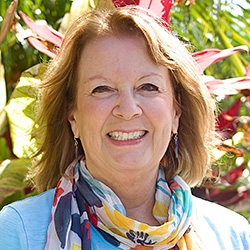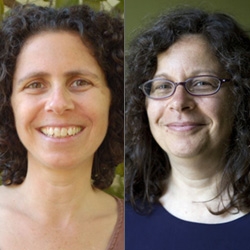
Search Results: clarity
-
What does nonviolence have to do with group facilitation?
Miki Kashtan believes that nonviolence is a way of being and living that orients us in all our thoughts, words and deeds toward the integration of truth, love and courage. All nonviolent individual and collective actions are aimed at preserving what serves life and challenging what does not. Facilitation is one clear path for bringing nonviolence to the world!
How can we act now, as facilitators, as if the world of our dreams, the Beloved Community, is already in place?
-
Come. Let us journey together into our own authentic Life force: the essential living energy that permeates all of our lives.
Your journey will begin at the center: with the divine / life force, or soul force.
Robert Gonzales shares how this fundamental life energy is the tender expression of your inner being, or soul. It unfolds through the heart as your deepest longings, which manifest themselves in all forms of human needs and values. When you live from the energies of compassion, creativity, love, and clarity – while remaining wholly grounded and aware of needs and values – then you are living your passion… You are living the Self-In-Life.
-
Discover how to transform your life by aligning your actions with what matters most to you. In David Weinstock's 4-session course, you'll learn essential skills like managing moods, making values-driven decisions, and building stronger relationships using NVC and somatic techniques. Whether you're new to NVC or an experienced practitioner, these simple yet powerful practices will help you bridge divides, release anxiety, and live with grounded compassion.
-
- Discover what is yours to do in response to our growing global crises
- Weave nonviolence more deeply into how you live and lead
- Receive ongoing support within and beyond the course in how to be effective and alive while doing what’s yours to do
- Increase your capacity to face and mourn current reality as a source of greater choice and energy
- Be a part of transforming the legacy of scarcity, separation, and powerlessness into a livable future
-
Jim and Jori Manske share the wisdom of Marshall Rosenberg, the founder of Nonviolent Communication (NVC). Join them to learn why knowing what you want before speaking is essential for clear, meaningful interactions. This snippet from their eight session course, 9 Skills for Navigating Conflict, explores how to make "confirmation requests" to ensure you're understood—whether you're navigating a tough conversation or simply ordering pizza!
-
- Explore how gender power dynamics impact everyday interactions
- Learn how to navigate these complexities with curiosity and compassion
- Gain the skills to build inclusive personal and professional environments
- Contribute to a world where every voice matters!
-
Hello,
I’m Iris Bawidamann. When Mary reached out to me asking if I’d write this letter, I sat for some time meditating on what is alive for me and what I want to share with you… This is what surfaced for me… Fear sits with me—on my shoulders, in my chest. A familiar presence I consciously keep in check so it doesn’t take over. Watching global politics, conflicts, and rising polarization, I often feel overwhelmed. The world is shifting.
-
-
-
In this short but profound audio, Susan Skye unpacks the various ways one may view (and experience) the need for respect. By deepening your understanding of respect, you will enjoy greater choice and clarity in your own experience of respect and in making a request of others.
-
Mary Mackenzie, renowned CNVC Certified Trainer, shares her understanding and experience of empathy.
-
Want to manage more effectively with more ease and joy and get your staff to make changes? The first, crucial step is to learn how to change your behavior to impact what's happening. For example, we can get the inner clarity we need to reframe questions we ask ourselves, recap, make clear requests, give concrete feedback, etc. This article expands on how self-management can increase influence...
-
In general, criticism is a reactive response discomfort. When someone criticizes, they are not yet able or willing take responsibility for their needs. All criticism is a tragic expression of feelings and unmet needs. When you meet that criticism skillfully you not only care for yourself, you can facilitate clarity, and constructive communication, about what the other person is truly asking for.
-
In order to bring in more nonviolence into the world, we need to take our own needs seriously and recognize that no amount of seeing someone’s innocence would mean putting up with more of their harmful behavior. We need to disentangle compassion towards another from the willingness to tolerate more harmful actions. At times this means finding enough self-love, support, or clarity, to take decisive action. Read on for more.
-
When someone expresses upset about our actions, and we focus on our intention being seen and understood (e.g. "I didn’t mean to hurt you”) it doesn't support the speaker in being heard more deeply with care. Here we'll explore this dynamic in a way that supports more clarity and the possibility of greater personal liberation. Read on for more.
-
Worthlessness and shame are linked to the idea of not belonging or being unworthy of belonging -- that is, a deep sense of belonging to life, to your sense of self, and to our earth. Compensatory strategies to win worthiness and belonging arise from here and effectively block the very thing it is pursuing. Transformation occurs when there is a critical mass of clarity about the harm of a particular way of thinking and behaving.
-
Try this four step exercise for making connection requests to support understanding, and to learn what effect your words had on the listener. In this exercise you'll choose a situation where you have clarity about what outcome will really work for you (your solution request), but where you imagine your desired outcome may not work for the other person, and/or are not sure there is sufficient connection for mutual trust.
-
When you don't have a sense of being heard you can apply skills to help you can interrupt cycles of reactivity and resentment, and create connection. Let's look at six ways that will support you in being heard. These are clarity about the topic and needs; supportive conditions; respect for autonomy; sharing your intention; attending to emotional security; and making clear requests.
-
Self responsibility is owning what's yours. It involves identifying your observations, evaluations, feelings, longings, and more. When we identify what's truly ours we are unlikely to mistake it as coming from outside of us. Self responsibility is not self blame. Without self responsibility, we project, blame and judge. Self-responsibility is central to clarity and full self-awareness. This exercise will guide you there.
-
With practice we can prevent reactivity from overtaking and harming: notice signs of reactivity, bring compassion to it, see reactivity as the misperception of threat and a distortion of what's happening, plus engage and pursue connection and the clarity to weaken reactive impulses. In taking responsibility like this overtime, you can live from your values and from care. And life can get easier for you and others around you.

















